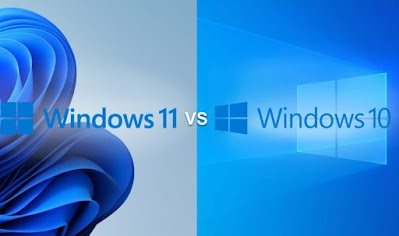
With the release of the new Windows 11 operating system, many users are wondering if it is convenient to update or format directly with the new system or if it can be convenient to keep Windows 10 for some time. This dilemma also arises from stringent requirements that brings with it Windows 11, which is unlikely to be installed on many PCs sold before 2015.
In the following guide we will show you what are the benefits of still keeping Windows 10 and the benefits of moving to Windows 11 now, so we know what the best scenario is for the PC we are using and why the rush to upgrade can be useless for some computer owners.
READ ALSO -> Differences between Windows 10 and Windows 11
Why keep Windows 10 as an operating system?
Windows 10 is not a “dead” operating system and Microsoft has no plans to abandon it anytime soon: as specified on the Windows 10 release page, the system will be supported until October 14, 2025, a reassuring date for all those who want to keep Windows 10 as a reference system on their computer.
Windows 10 updates will be constant and will allow you to always get security patches (until the date indicated above) and, when necessary, also feature updates. Obviously we have to gear up for keep Windows 10 up to date: as visible on the page linked at the beginning of the chapter, the individual releases have a rather short support (2 years from release), so it is always worthwhile upgrade to the latest release of Windows 10 in order to keep it updated.
From the point of view of program support, there is no problem: many popular programs still support Windows 7 and Windows 8.1, so we can install on Windows 10 all the apps and software we use every day for work or study.
Support from devices is also not in danger: all peripherals and internal and external components sold until 2025 will also be compatible with Windows 10, pushing away the scenario in which it is not possible to add peripherals or new components due to an incompatibility of system.
For the moment it is not known what the benefits of TPM 2.0 (essential requirement of Windows 11) from the point of view of system security: probably the features that exploit it are still well hidden under the hood or have not yet been activated. Waiting to understand how the situation will evolve, Windows 10 is still one of the safest operating systems to use, with a good antivirus integrated into the system and various control systems designed to stop hackers and viruses before they can cause damage.
Why move to Windows 11 as soon as possible?
If our computer supports Windows 11 (i.e. it meets all the requirements) but we have not yet decided to upgrade, perhaps it is time to proceed. Microsoft will focus all its efforts to bring the new features only to Windows 11, relegating Windows 10 to an operating system for incompatible PCs. If we are lovers of news and new things Windows 11 will quickly become a reference point for the innovations introduced by Microsoft, so it is better to update as soon as possible.
From the point of view of compatibility with programs we need not fear anything: Windows 11 excellently supports programs already developed for Windows 10. Over time, the new system will also obtain targeted optimizations to take advantage of the new graphic interface and the improvements under the hood: it is therefore not to be excluded that, in a short time and with the same hardware, programs will run faster on Windows 11 compared to Windows 10.
Waiting to see TPM 2.0 at work in system security, on Windows 11 we find the same antivirus present on Windows 10 (Windows Defender), so we are currently protected in the same way. Nothing prevents Microsoft from upgrading Windows Defender and exploiting it only on Windows 11, without forgetting that security bugs will be fixed faster on Windows 11 than on Windows 10: it is easy to assume that, in some time, Windows 11 will become more secure than Windows 10.
Obviously after 2025 the only supported operating system will be Windows 11: even if there is still a long time to go, it is better to take advantage of the new graphics and improvements of the new system right away, especially if we often work on the PC and need a performing and reactive machine in every situation.
Conclusions
How easy it is to read from the two chapters Windows 10 is still an excellent operating system to focus on in the short-medium term: all the experience accumulated in previous years have made it a fast, stable and easy to use system. If our PC doesn’t support Windows 11 then let’s not turn it into a drama: we can continue to use Windows 10 until the end of support or until the PC becomes too old and slow or until it breaks down.
Windows 11 does not seem to have any real advantages over Windows 10 at the moment (excluding the graphical aspect and some new features relevant to Windows 11), but these advantages will surely re-emerge over time: if our PC is compatible and it is possible to update, let’s do it now, taking advantage of the fact that the operation is free for now (for those who already have a valid Windows 10 license).
If we really can’t wait and we want Windows 11 at all costs, it is necessary to resort to some tricks to be able to bypass checking the TPM and Windows 11 minimum requirements, also creating a Windows 11 USB stick with limits already removed.
If your PC has less than 8 GB of RAM, it’s not worth switching to Windows 11, but we must seriously consider switching to a Linux distribution, perhaps focusing on Linux simili systems in Windows 11.
